- Home
- Anne Stuart
Never Trust a Pirate Page 7
Never Trust a Pirate Read online
Page 7
He charged in, only to be brought up short, frozen.
She was sitting up in bed, her long, silky dark hair loose around her shoulders, though one side was partly braided, as if she’d been disturbed in the act. She was wearing a soft white nightdress of some sort, too thin for the chill in the attics, her eyes were wide in fear, and she’d stuck a small fist in her mouth to silence the noise she’d been making.
He had a knife drawn, and he whirled around, looking for a possible assailant. There was no one there but the two of them, and as she stared up at him she looked, if possible, even more frightened.
“What the bloody hell is going on?” he roared, his heart beginning to fall back to normal.
She opened her mouth to say something, but only a tiny whimper came out. She cleared her throat, stammering something he couldn’t understand.
He shoved the knife back into the narrow sheath, glowering down at her. “What?”
“B-b-bats,” she stammered.
“Oh, sweet Neptune’s briny pants,” he swore. “Is that all? I thought you were being murdered.”
Belatedly she seemed to realize her compromising position. She leapt out of her narrow, sagging little bed and quickly took the threadbare cover off it, wrapping it around her. A shame, too, as the moonlight coming in the window had outlined her silhouette quite nicely, and spending time with Gwendolyn always made him randy as a goat.
“Beg pardon, sir,” she said, and her voice had changed subtly, sounding a little more like the rough North and less cultured than her original tones. Granted, one stammered word wasn’t enough to be sure, but she’d done the same thing that afternoon when the sailors had been pestering her. Moved between Mayfair and Lancastershire with suspicious ease. “I’m mortal feared of bats.”
No, it wasn’t quite right. He could see her eyes, and while he had no doubt she was honestly frightened, he could see a tiny hint of calculation in their depths, as if she wanted to be certain to say the right thing. Too late for that, my girl, he thought grimly.
“I’m afraid, Miss…”
“Greaves, sir,” she said, going for a little more North-country in her voice. “M-M-Mary Greaves.”
And his name was William Kidd. Then again, his name certainly wasn’t Thomas Morgan, though he’d taken the last name in honor of one of England’s most famous pirates. But what reason would the girl have for giving the wrong name?
“Is your stammer permanent, or simply as a result of flying rodents?” He saw her inadvertent shiver, and knew that at least her fear of bats was very real.
“I’m that sorry, Captain. I didn’t mean to disturb you. They surprised me, is all. The moon came out from behind a cloud and one flew across the room…”
“You’ll have to get used to them until I can get someone in. I can hardly have you sleeping on the second floor.”
“Of course not, sir.” She sounded even more panicked at the thought. Jesus, the girl was afraid of her own shadow. Except she hadn’t been afraid this afternoon, when she ought to have been. She’d been defiant and outraged. “It just startled me. I’m all right now.”
“I’m delighted to hear it,” he said dryly. “Is this your first day here?” He knew perfectly well it was—he never would have kissed her if she’d been in his house previously.
She blinked, obviously disconcerted. So she’d expected him to recognize her? Far be it from him to fulfill expectations. “Y-yes, sir.” The stammer again, he thought. She hadn’t stammered earlier in the day.
“Well, Mary Greaves, I hope you don’t make a habit of screaming in the middle of the night and waking me from sleep. I’m a lenient employer but there are limits.”
“Were you asleep, sir?”
He cocked an eyebrow. “Is that any particular business of yours?”
She was gaining back some of that steel he’d detected beneath her cool exterior earlier today. Now she was more like the young virago who’d kneed a man in his privates without hesitation. Perhaps it was a good thing he didn’t poach the staff for his bed—he valued his privates too much. But who the hell was she?
“No, sir. Beg pardon, sir.”
He knew his expression showed nothing of his thoughts—another talent earned young. “I presume Mrs. Crozier has already filled you in on my particular preferences. I drink coffee, not tea, in the morning, and I like it strong and sweet. Do not wake me up unless I request it, never think to enter my library or touch my papers. In all, do what Mrs. Crozier tells you and stay out of my way and we’ll get along fine.”
“Is there any reason we shouldn’t, sir?” she asked, another inappropriate question. If this girl had been a maid before, then he was a landlubbing pig farmer.
He looked at her with complete indifference. “I see no reason.” He could recognize it, even in the shadows, that glimmer of confusion in her eyes. She had been certain that he’d recognize her, but now she was unsure, which was exactly how he wanted it. As far as she knew he was in the habit of kissing any pretty girl he met, and one was much like the next. Except for this one, his truthful self admitted, but he ignored the notion. No, he would play it this way for both their sakes. He’d never met her, never tasted her virginal mouth, and he damned well never would again. At least, not until he remembered where he’d seen her before.
“Very good, sir.” Her voice was drifting into Mayfair territory again. There was a perfectly acceptable reason for that, of course. Anyone in service with ambitions would work toward bettering herself, and the first step would be her accent. Voices placed you in society, and the girl would want to ape her so-called betters, not sound like a country lass.
He had an ear for accents—he could take and discard any of them at his pleasure, and every now and then he liked to let the sound of the London docks into his voice to shake up the Havilands. They wanted his money, of course—old man Haviland had lost a fortune when Eustace Russell had decamped, and Luca had no doubt he wouldn’t have gotten within ten feet of his precious Gwendolyn if he hadn’t come equipped with a relatively staggering amount of money. Haviland knew to a penny what he was worth, and probably did daily calculations, and that wasn’t counting the priceless items he kept hidden. It didn’t matter—if money could buy an exquisite porcelain doll like Gwendolyn, he’d decided he was willing to pay the price. And the smartest thing he could do was ignore his present doubts.
He moved into the hallway, heading toward the pile of rubbish at one end, and he heard her start after him. She was just about to close her door in his face when he turned, presenting his offering.
She looked down at the broken tennis racket that had belonged to some indolent creature who’d lived here long ago. “Did you want me to mend this, sir?” she asked blankly.
“No, I want you to play tennis with me,” he drawled. Her hair had come free from her half braid now, and it was truly glorious hair, the moonlight sending a warm glow into its rich depths, and he wondered what it would smell like. Bleach and carbolic? Or the heady scent of flowers?
Not now, he reminded himself. “It’s to drive any stray visitors away,” he said casually. “Just open a window and knock them outside.”
“If I open the window, won’t more bats come in?” It was stuffy up here, despite the damp chill. That explained it then.
“You close the window, in between dispatching them. Who knows, you might develop an impressive backhand in time.”
She shouldn’t know what he meant, but apparently she did and she wasn’t amused. Interesting, when most women found him irresistibly witty. “Yes, sir,” she said in not much more than a disgruntled mumble. “Will that be all, sir?”
She was dismissing him. He found the thought so amusing he almost moved back toward her, crowding her, pushing up against her… no. Not now, he reminded himself.
“Yes, M-Mary.” If she truly had a stammer that was unconscionably cruel of him, but he knew she didn’t. She simply wasn’t sure which name she’d chosen to use. He was almost at the top of the open stai
rs when she spoke, halting him.
“Sir, you look a bit familiar. Have we met before?”
He turned to look at her. So she was going to go there, was she? He needed to set her mind at ease. “I don’t think so. But then, I meet so very many people. Too many, in fact. Part of your job will be to lie and tell people I’m not at home.”
“Yes, sir.” She didn’t bob a curtsey, which was just as well. She looked ridiculous clutching that thin blanket around her, her bare feet just peeping under the hem of her nightgown. Her feet were going to get cold. They were very pretty feet.
“Get back in bed, Mary. Morning will be here sooner than you think.”
“Yes, sir,” she said again, but he could see the relief in her eyes. So she didn’t want him to remember that kiss any more than she wanted to remember it. Easier said than done, my girl, he thought, clattering down the narrow staircase. It was going to be a long time before he forgot her taste.
Maddy looked at the battered tennis racket in her hand. She hadn’t held one in years, not since she’d started spending so much time in London with her father, learning the business. Oh, not that he’d expected her to take over. She was only a female, after all—not a fit heir to the empire he’d built so carefully, she thought with that trace of bitterness she’d never been able to stifle completely.
Bryony had chosen to retire from life—she’d insisted she was never going to marry—so their father been looking to Maddy to find a husband and produce a suitable heir to the business. There’d been no particular hurry—Eustace Russell had intended to live forever, and he could wait until her offspring grew up. In fact, he’d only been in his late forties when he’d died, far too young.
Her father hadn’t particularly cared for Tarkington, but apart from a word of warning he’d said nothing. Jasper Tarkington had been charming, devoted, and Maddy thought she’d loved him. Oh, she’d been reasonable about it—she was an heiress and he was a younger son of an ancient family. He needed her money, but he loved her, he truly did.
Or so she thought. What would have happened if things hadn’t changed so dramatically? Would their marriage, because it had been inevitable, have been a happy one? Unlikely. He’d proven himself untrustworthy, abandoning her the moment the scandal became known. Taking just enough time to relieve her of her virginity before heading for South America, out of her reach and any consequences of that awful night.
There’d been no consequences, thank God. She’d gone to him, alone, desperate, needing proof that he wasn’t going to abandon her, that he truly loved her no matter what her father had done. And she’d been so determined to prove her own devotion she’d let him have what he’d been trying to get from the very beginning. She’d gone with him to his bed, willingly, certain it would cement their relationship. In the morning he’d been gone, with nothing but a note expressing polite regret that their relationship was at an end.
Cowardly bastard that he was. She’d wept private, bitter tears of shame and regret and yes, longing, until she’d finally grown disgusted with her own weakness. She moved on to berating herself, thinking she’d somehow been found wanting, but common sense told her otherwise. He’d used her body and enjoyed himself, so thoroughly that while she took little pleasure in the act, holding him afterwards, stroking his damp hair had given her a wonderful sense of fulfillment. Until he left.
She wasn’t going to make that mistake again. Her lack of virginity might prove an issue in the impressive marriage she was determined to make, but there were ways around that particular problem. Tarkington had hurt her, but according to her outspoken married friends the amount of pain had more to do with the skill of the lover. Not that she’d told anyone about her fall from grace, not even her sisters, but she’d quietly gathered information. It would be easy enough to pretend discomfort and then leave behind a bit of chicken’s blood on the linen sheets. And if worse came to worst, Eastham was so determined he probably wouldn’t mind.
And why was she thinking of Tarkington again? Was it something about the captain that reminded her of those unpleasant hours in Tarkington’s bed? And would it be the same with someone like the captain? No, she wasn’t going to think of him in those terms.
He was so unlike the other captains she had met—gruff, bluff men who strode through life as if the entire world was their ship and under their command. They were like English bulldogs—straightforward and forceful.
This man was more like a cat, some great jungle cat, sleek and graceful, secretive and prowling. He unnerved her, made her think of things she shouldn’t be thinking of…
She had to stop that right now, she thought, hefting the racket in her hand. It could be used to fight off libidinous desires as easily as winged rodents… She shuddered, amending her term. Bats.
It was a good thing he didn’t even remember her. Apart from the moment when he kissed her all his attention had been on the three sailors. And he’d finally walked away from her without a glance back.
She wanted to laugh at herself. She was so used to being the toast, the exquisite heiress, Miss Madeleine Russell. Men would fight to dance with her. She had dismissed half a dozen suitors for Jasper Tarkington, tall and blond and arrogant. Would any of them have stayed the course after the scandal broke? If she’d already been engaged, any one of them would have had a hard time crying off without looking like a total cad. With Tarkington it had been an understanding, not an actual engagement, making it easy for him to disappear. Damn him to hell, she thought, savoring the curses. Her father had always deplored her language, but right now she was glad of it. Tarkington deserved her most profane sentiments.
How much of that devotion had been the result of her father’s money? She had a mirror and clear vision—she knew what she saw in her reflection: a perfect oval face, the dark blue eyes of her father, rich, wavy hair. Nose—small. Mouth—generous. Skin and teeth—tediously perfect. It was a fact, not vanity, to say she was a beauty, and that was more of a liability than a gift in this particular endeavor. Surely there must be less attractive things to do with her hair. Even braiding it tightly and poking it into the cap Mrs. Crozier insisted she wear didn’t do much to dampen her appearance.
She tried to remember her and her sisters’ amateur theatricals. She had played Richard the Third once, with her sisters taking the other roles, and Richard was certainly heinous, though Maddy had always had her doubts about the real man. He probably wasn’t any worse than the rest of them, he just ended up on the losing side, and winners were the ones who wrote the history.
Perhaps she could use some of her Richard traits. Hunch one shoulder, squint, or develop a useful limp. Mrs. Crozier already thought of her as half mad because of her habit of getting lost in her thoughts—if she could use that, it might make people steer clear of her. She’d played ghosts as well—she could try a breathy, eerie voice.
She closed the door to her room, still clutching the tennis racket in one hand. She swung it back and forth tentatively—she’d played tennis with Bryony in the court at Somerset, back when life was simpler. She swung it through the air again, trying to imagine whom she wanted to smack with it. For some reason the captain’s exotic, wicked face came into view.
Clearly she wasn’t made for being in service—she didn’t take orders well, either from Mrs. Crozier or the captain. Something inside her wanted to rebel, and she wanted to charge downstairs, go into his office, and toss his precious papers all over the place.
If this didn’t work out she’d best not seek work as a governess but rather find the rich, titled husband immediately. They grew on trees in London, didn’t they?
And imagine that Bryony had ended up with one. Beautiful Bryony with her scarred face and her determined soul was now a countess. Granted, she was a countess in exile, but still and all, she’d done what neither of her conventionally beautiful younger sisters had managed.
In fact, it had been Bryony’s idea to go into service in the first place, though she hadn’t imagined Maddy would go
haring off on her own. Bryony had gone after their first and most-likely suspect, their father’s business partner and the one man who’d emerged unscathed from the collapse of the company, the notorious Earl of Kilmartyn, and instead of proving him guilty of their father’s destruction she’d gone and married him, despite rumors that he murdered his first wife. Right now they were on the continent, well out of the way of the law while Kilmartyn’s men tried to prove his innocence.
Apparently the Earl of Kilmartyn had enough money to support them all, a lovely thought, but Maddy intended to take care of herself, and Sophie besides. Maddy had no intention of going into exile, despite her longing to travel. She wanted the truth, she wanted justice, and she’d do just about anything to get them.
Including being a maid in the household of the most disturbing man she ever met. He made her feel strange, uneasy, with a clawing feeling inside that wasn’t completely unpleasant. It wasn’t just because he kissed her. She’d been kissed before, but never like that. But he was unlike anyone she’d ever known, he was a conundrum, and at another time, in another life, she’d be fascinated, even tempted. She couldn’t afford to let that happen.
No, she’d stay the course. He didn’t even remember her, and no one ever looked at maids. She could ferret her way around things and find the truth. And maybe, in the end, if he turned out to be innocent and she was ready to leave, she might just grab him by his open white shirt and kiss him good-bye.
She laughed, sliding under the threadbare covers again, the racket still tight in one hand. She could just imagine the expression on his face. It would make all the hard work worth it.
But in the meantime she needed to concentrate on the job at hand, not Captain Morgan. His guilt or innocence would come to light soon enough. She just couldn’t afford to get distracted.

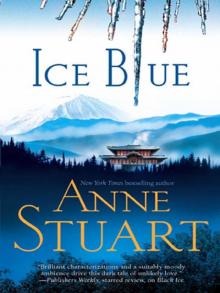 Ice Blue
Ice Blue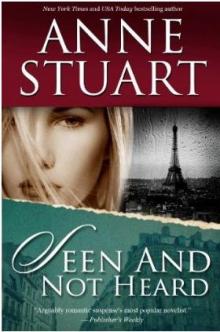 Seen and Not Heard
Seen and Not Heard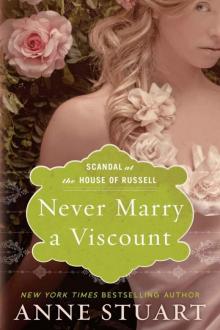 Never Marry a Viscount
Never Marry a Viscount Heartless
Heartless The Devil's Waltz
The Devil's Waltz Hidden Honor
Hidden Honor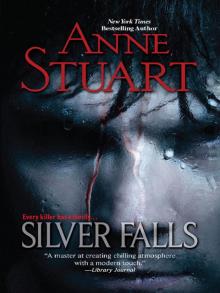 Silver Falls
Silver Falls Fire and Ice
Fire and Ice Nightfall
Nightfall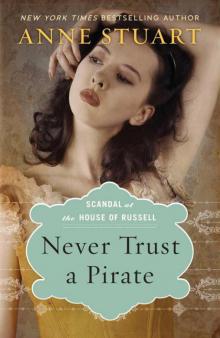 Never Trust a Pirate
Never Trust a Pirate The Soldier and the Baby
The Soldier and the Baby Still Lake
Still Lake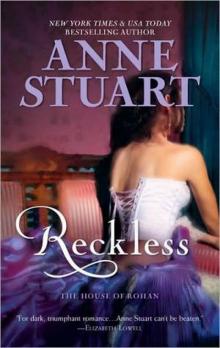 Reckless
Reckless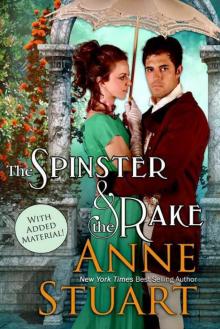 The Spinster and the Rake
The Spinster and the Rake Winter's Edge
Winter's Edge At the Edge of the Sun
At the Edge of the Sun Into the Fire
Into the Fire Night of the Phantom
Night of the Phantom Ritual Sins
Ritual Sins Darkness Before the Dawn
Darkness Before the Dawn Against the Wind
Against the Wind Ruthless
Ruthless The Catspaw Collection
The Catspaw Collection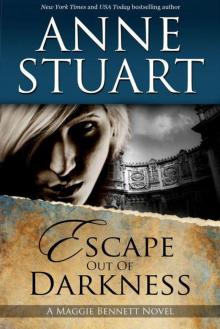 Escape Out of Darkness
Escape Out of Darkness The Widow
The Widow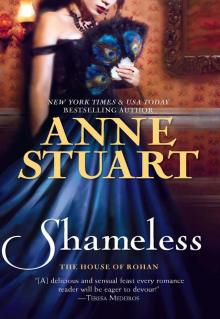 Shameless
Shameless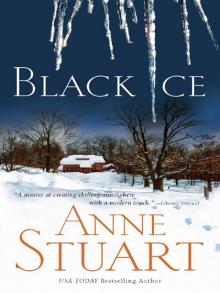 Black Ice
Black Ice Breathless
Breathless Shadows at Sunset
Shadows at Sunset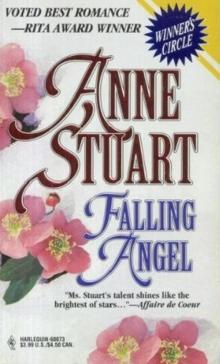 Falling Angel
Falling Angel Housebound
Housebound Cold as Ice
Cold as Ice The Wicked House of Rohan
The Wicked House of Rohan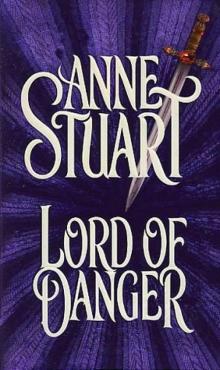 Lord of Danger
Lord of Danger The High Sheriff of Huntingdon
The High Sheriff of Huntingdon Wildfire
Wildfire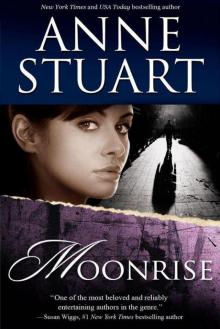 Moonrise
Moonrise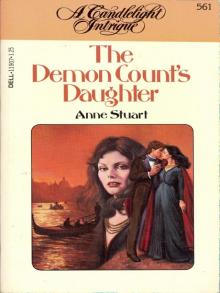 The Demon Count's Daughter
The Demon Count's Daughter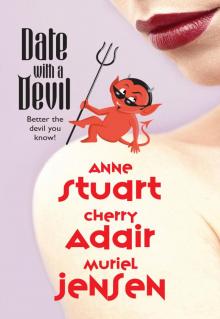 Date With a Devil
Date With a Devil To Love a Dark Lord
To Love a Dark Lord Driven by Fire
Driven by Fire Special Gifts
Special Gifts Ice Storm
Ice Storm Shadow Lover
Shadow Lover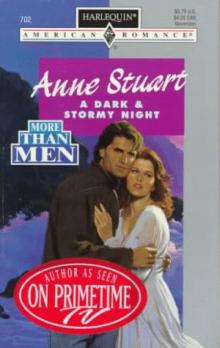 A Dark & Stormy Night
A Dark & Stormy Night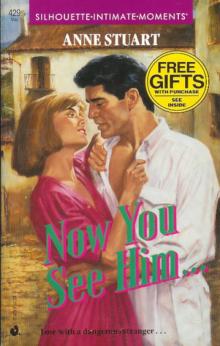 Now You See Him...
Now You See Him...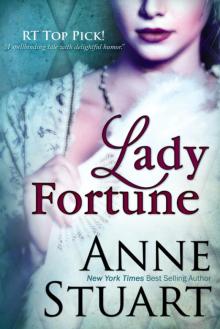 Lady Fortune
Lady Fortune Glass Houses
Glass Houses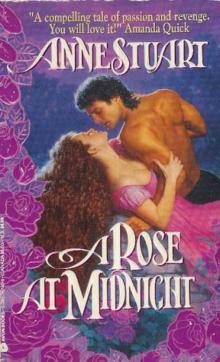 A Rose at Midnight
A Rose at Midnight Prince of Swords
Prince of Swords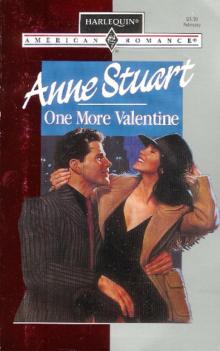 One More Valentine
One More Valentine Return to Christmas
Return to Christmas Tangled Lies
Tangled Lies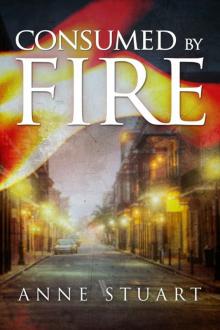 Consumed by Fire
Consumed by Fire The Fall of Maggie Brown
The Fall of Maggie Brown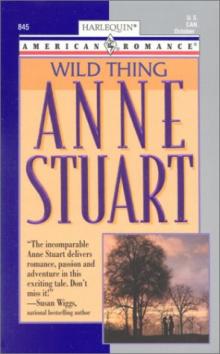 Wild Thing
Wild Thing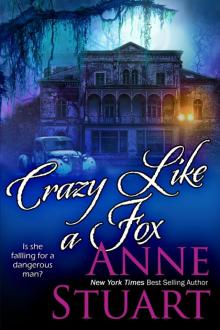 Crazy Like a Fox
Crazy Like a Fox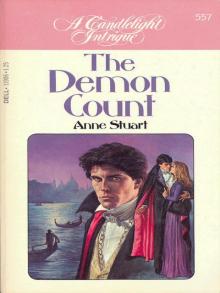 The Demon Count
The Demon Count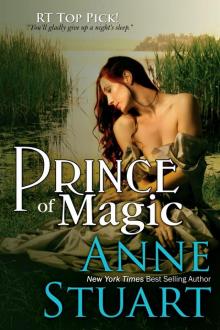 Prince of Magic
Prince of Magic Wildfire (The Fire Series Book 3)
Wildfire (The Fire Series Book 3)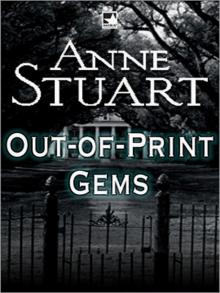 Anne Stuart's Out-of-Print Gems
Anne Stuart's Out-of-Print Gems Shadow Dance
Shadow Dance Under an Enchantment: A Novella
Under an Enchantment: A Novella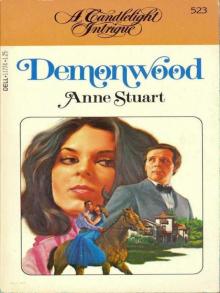 Demonwood
Demonwood Blue Sage (Anne Stuart's Greatest Hits Book 3)
Blue Sage (Anne Stuart's Greatest Hits Book 3) Barrett's Hill
Barrett's Hill Angel's Wings (Anne Stuart's Bad Boys Book 5)
Angel's Wings (Anne Stuart's Bad Boys Book 5)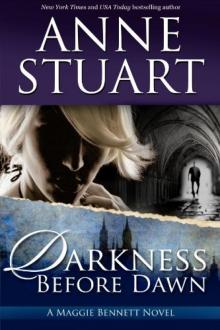 Darkness Before Dawn
Darkness Before Dawn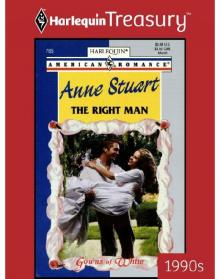 The Right Man
The Right Man The Houseparty
The Houseparty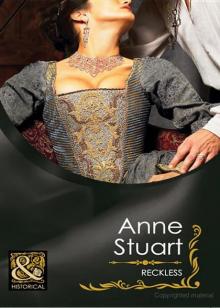 Reckless_Mills & Boon Historical
Reckless_Mills & Boon Historical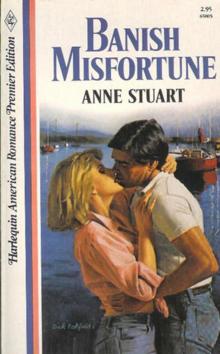 Banish Misfortune
Banish Misfortune Angel's Wings
Angel's Wings Chain of Love
Chain of Love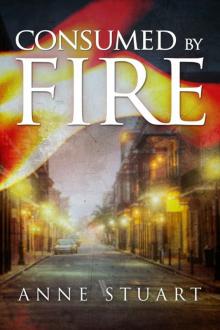 Consumed by Fire (The Fire Series)
Consumed by Fire (The Fire Series)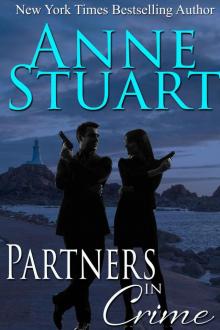 Partners in Crime (Anne Stuart's Bad Boys Book 4)
Partners in Crime (Anne Stuart's Bad Boys Book 4) The Soldier, The Nun and The Baby (Anne Stuart's Greatest Hits Book 2)
The Soldier, The Nun and The Baby (Anne Stuart's Greatest Hits Book 2)